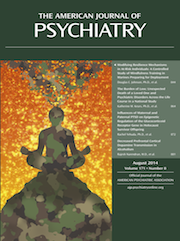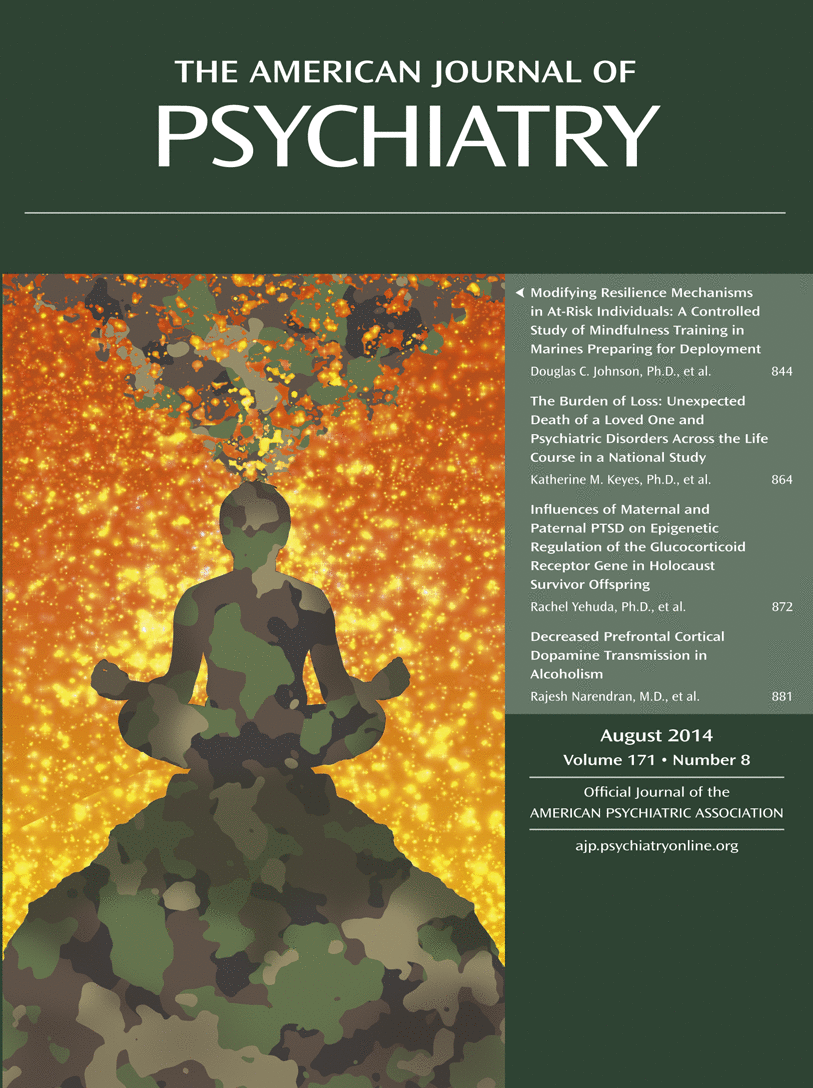To the Editor: We report a case of serotonin toxicity related to a CYP2D6 poor metabolizer, initially diagnosed as drug-resistant depression.
A 48-year-old Caucasian man, with no somatic disorder and no familial psychiatric history, underwent a major depressive episode 5 years ago and started citalopram (partially metabolized by CYP2D6, mainly CYP2C19/3A4), 20 mg/day increased to 40 mg/day. Simultaneously, he developed a bilateral resting hand tremor that was treated efficiently by atenolol, 20 mg/day. Moreover, major asthenia and anxiety persisted. Citalopram was switched to venlafaxine XR (mainly metabolized by CYP2D6), 75 mg/day progressively increased to 300 mg/day. He reported no improvement and his asthenia increased.
He was admitted to our psychiatric department with major anxiety, asthenia, and difficulties falling asleep. He reported no sadness, social withdrawal, anhedonia, or suicidal ideation. Physically, he presented with hypertonia, diaphoresis, chronic sustained secretory diarrhea, ankle clonus, and patellar hyperreflexia. The results of blood serum screening (including thyroid hormones, glycemia, and calcemia) and cerebral contrast MRI were normal. His Hamilton Depression Rating Scale (HAM-D) score was 23; however, six items indicated anxiety or somatic symptoms. All symptoms evoked moderate serotonin toxicity rather than resistant major depressive episode.
Further investigation revealed a markedly higher than expected trough venlafaxine (V) plasma concentration (900 ng/ml) and undetectable O-desmethylvenlafaxine (ODV), its predominant metabolite (<50 ng/ml), whereas the therapeutic range is 150–400 ng/ml (V+ODV). The ODV/V ratio was <0.055. Co-medication with oxazepam could not explain such levels. CYP2D6 and CYP2C19 genotyping routinely performed in our laboratory (alleles CYP2D6*3,*4,*5,*6,x2N, CYP2C19*17) showed CYP2D6*4/*4 corresponding to a poor metabolizer phenotype. Thus, chronic serotonin toxicity caused by CYP2D6 poor metabolizer was diagnosed.
The dosage of venlafaxine XR was decreased to 37.5 mg/day. Dramatic improvement of symptoms, including hand tremor (even after stopping atenolol), was observed within 2 weeks, and his HAM-D score decreased to 6. Trough venlafaxine concentration decreased to 250 ng/ml and ODV remained undetectable. No depressive relapse had occurred after 12 weeks.
While well known in its dramatic form (serotonin syndrome), serotonin toxicity is less diagnosed in its moderate and chronic form (
1), in which some symptoms, such as tremor, diaphoresis, and anxiety could be mistaken for depressive ones.
Serotonin toxicity has been previously reported with venlafaxine but in its severe form, with rapid onset, suggesting no CYP2D6 activity (
2). ODV/V ratio below 0.3 has been associated with CYP2D6 poor metabolizer and side effects (
3).
Consequently, for depressed patients with persistent symptoms, physical examination is essential to detect signs of serotonin toxicity (spontaneous clonus—the most specific sign—mydriasis, tremor, hyperreflexia, and akathisia). In addition, physical symptoms in a major depressive episode should incite antidepressant monitoring from an early stage and CYP2D6 genotyping if elevated. Such tests could help clinicians diagnose serotonin toxicity and give the right antidepressant drug and dosage to the right patients.

